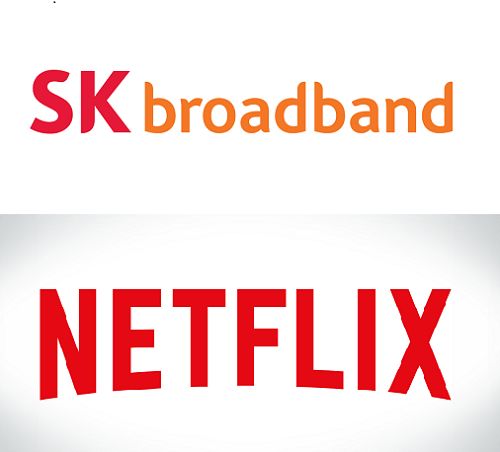
In the new year, SK Broadband and Netflix continued to fight in court over whether or not to pay for the use of the network.
Netflix continued to argue that connection and transmission were different concepts, and SK Broadband refuted that it was forcing the claim that transmission was free.
Disagreements on the interpretation of the dispute over overseas cases related to network usage fees, the definition of the concept of the domestic interconnection notice, and the fiscal procedure conducted by the Korea Communications Commission in the form of arbitration were not narrowed.
In the second pleading of the lawsuit between Netflix and SK Broadband held at the Seoul Central District Court on the 15th, only the conflicting arguments of the two sides were repeated as in the first pleading in November last year.
However, in the workshops of both sides, the interpretation and concept of terms are expected to be summarized after a presentation of the technical concept in the court in the future.
In addition, as SK Broadband is predicting a counter lawsuit for the return of unfair profits in response to Netflix’s lawsuit for confirming the existence of debt, the court dispute over network users is expected to intensify.
■ Netflix distinguishes Internet connection fee and transmission fee
Netflix is in a position that it will be recognized in a civil lawsuit that it is not responsible for paying for the use of the network to SK Broadband while the Korea Communications Commission’s financial process is in progress. On this day, too, it was reiterated that SK Broadband, an information and communications service provider (ISP), transferred the responsibility of the ISP to pay the network usage fee to Netflix, the CP.
In particular, Netflix is the point of connection from OCA (Open Connect Alliance), which is a form of Netflix cache server, to ISPs in Japan and Hong Kong, and the section from ISPs in Japan and Hong Kong to SK Broadband is the transmission section. Divided into.
In other words, he argued that the basic principle of the Internet is that only the connection fee is paid to ISPs in Japan and Hong Kong, and that the CP does not pay the transmission fee for the international section connected to SK Broadband.
In response, SK Broadband refuted that it is not only obligated to pay the connection fee even if it obeys Netflix’s claims, but also stipulates the obligation to settle the connection fee on the premise that transmission is charged in the interconnection notice.
In addition, the claim that Netflix is free to transmit also drew a line that the basic principle does not exist and that it is not at the level of the principle that domestic courts will follow.
■ Netflix’s lies, SK Broadband counterclaims
A different interpretation of the ruling of a local federal court on US ISP charters was also made. CP is a case that overshadows the claim that there is no reason to bear the cost of using the network and there is no such case in any country in the world. This is a representative case that acknowledged the characteristics of the Internet’s double-sided market.
Netflix emphasized only that the charter ruling was not a ruling ordered by the network use corps, and SK Broadband refuted that it should not obscure the essence, saying that it was saying that the transmission was not free as Netflix claims in a domestic court.
Internet experts estimate that the mixed interpretation of access and transmission is not a part of much controversy, such as the first and second arguments, if the court can only acquire an understanding of the technical situation.
In particular, as Netflix has revealed that it is paying for the use of the network despite having a dispute with Comcast, a local ISP in the US, Netflix’s arguments in domestic lawsuits are dominant.
Related Articles

[기자수첩] Will the court give Netflix indulgence?

Will the cost of content increase if Netflix pays for the network?

The reason why even civic groups were caught up in Netflix’s tricks

[기자수첩] Netflix’s Strange Negotiation Strategy
Ken Florence, who is the vice president of content delivery for Netflix, stated that the local court was not paying for the use of the network, but told Comcast that he was paying for the use of the destination network to the Federal Communications Commission (FCC).
Technical presentations and witness newspapers are scheduled to resume on April 30th. SK Broadband said in the court on the same day that it would first find out the technical situation and the concept of a communication network that is being misinterpreted and then file a counterclaim.
